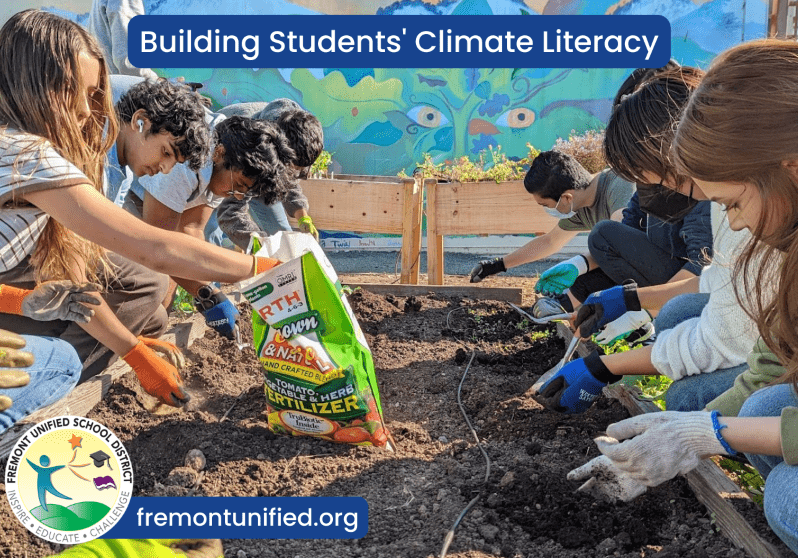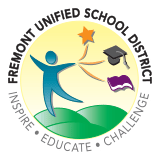Eco-Friendly: Building Students’ Climate Literacy
Across Fremont Unified School District campuses, educators are making individual and concerted efforts to build students’ climate literacy and environmental awareness.
“Our educators do amazing work to prepare students to face challenges with creativity, resilience and determination,” said Superintendent CJ Cammack. “Through various actions, our Board of Education has recognized that part of preparing our students for the future they are entering is ensuring they are climate literate.”
In May 2021, the Board approved Resolution No. 030-2021, which declared FUSD’s commitment to educating students on climate change and solutions.
To meet this commitment, and perhaps as a reflection of the importance of this topic, instruction on climate themes is becoming increasingly interdisciplinary in FUSD – not confined to science classes, environmental clubs, or even the traditional school year.
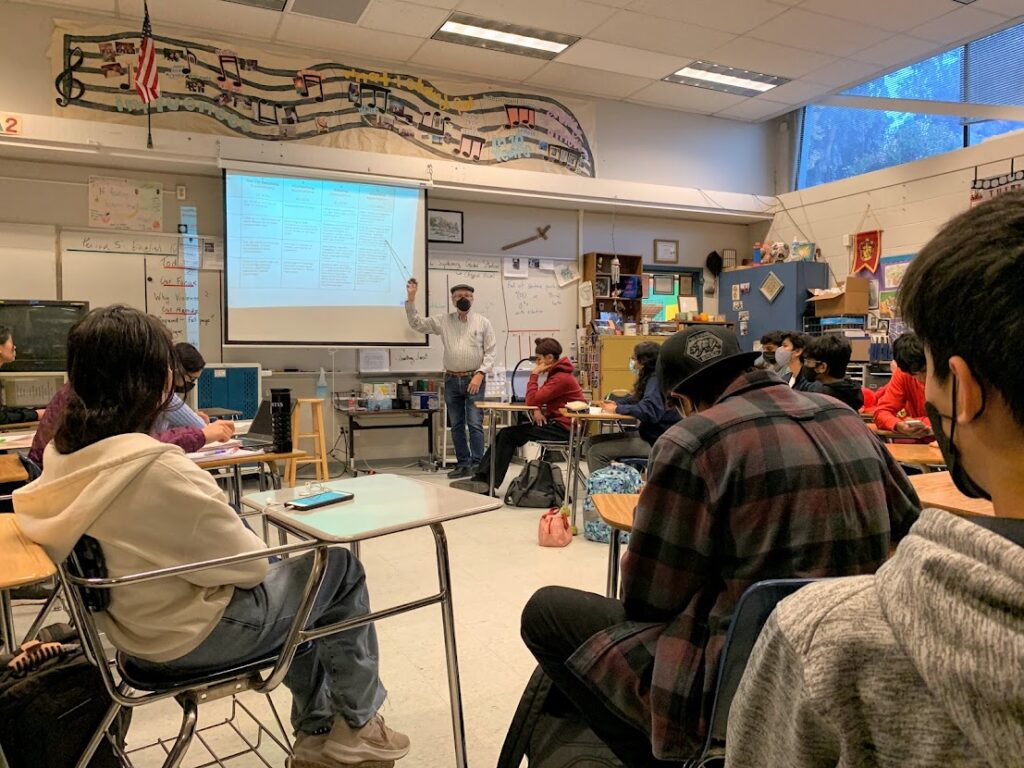
John Creger's 10th grade Honors English class during final in December 2022 at American High School.
At American High School (AHS), English Teacher John Creger regularly integrates climate awareness into his classwork. In December 2022, Creger’s 10th grade Honors English class final included dialogue circles on climate topics.
Students performed extensive research to prepare for participation. Over three rounds of dialogue on climate topics – global policy, human response, and technological and infrastructural changes – students posed questions to further the conversation, then referenced their research to respond and constructively build upon each other’s ideas. Creger noted, the final was not calling for a debate, but calling instead for an “informed dialogue.”
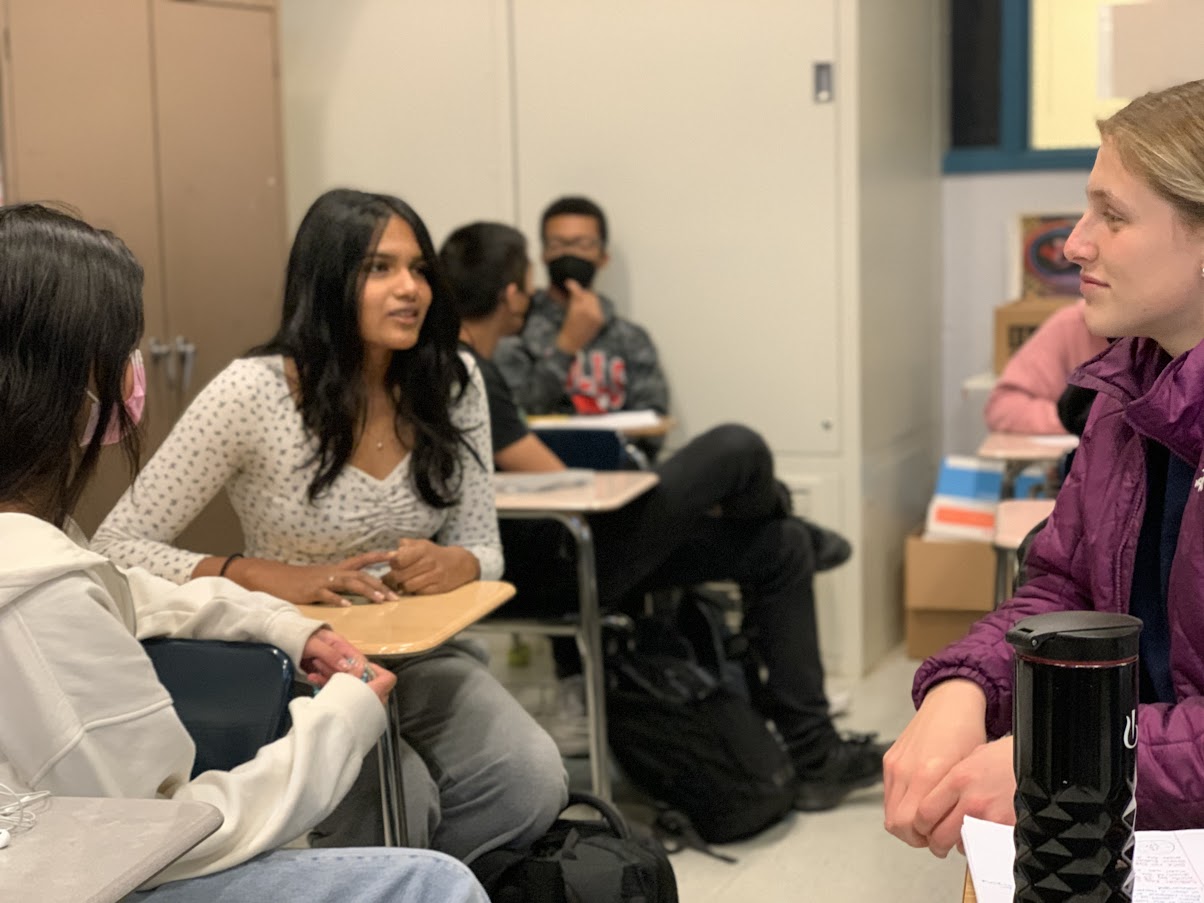
Students engaging in discussions during class final in December 2022 at American High School.
This model can help students explore and deepen understanding on many topics of discussion, but Creger chose to focus on climate.
“Members of Gen Z bear the brunt of our anxiety about the current precarious state of the planet,” said Creger. “Whereas previous generations came of age with varying degrees of confidence in the strength of nature to prevail against human existence, Gen Z comes of age in a time of accelerating danger and even doom in our relations with the earth. They need to have conversations aimed at understanding the nature and degree of the threat.”
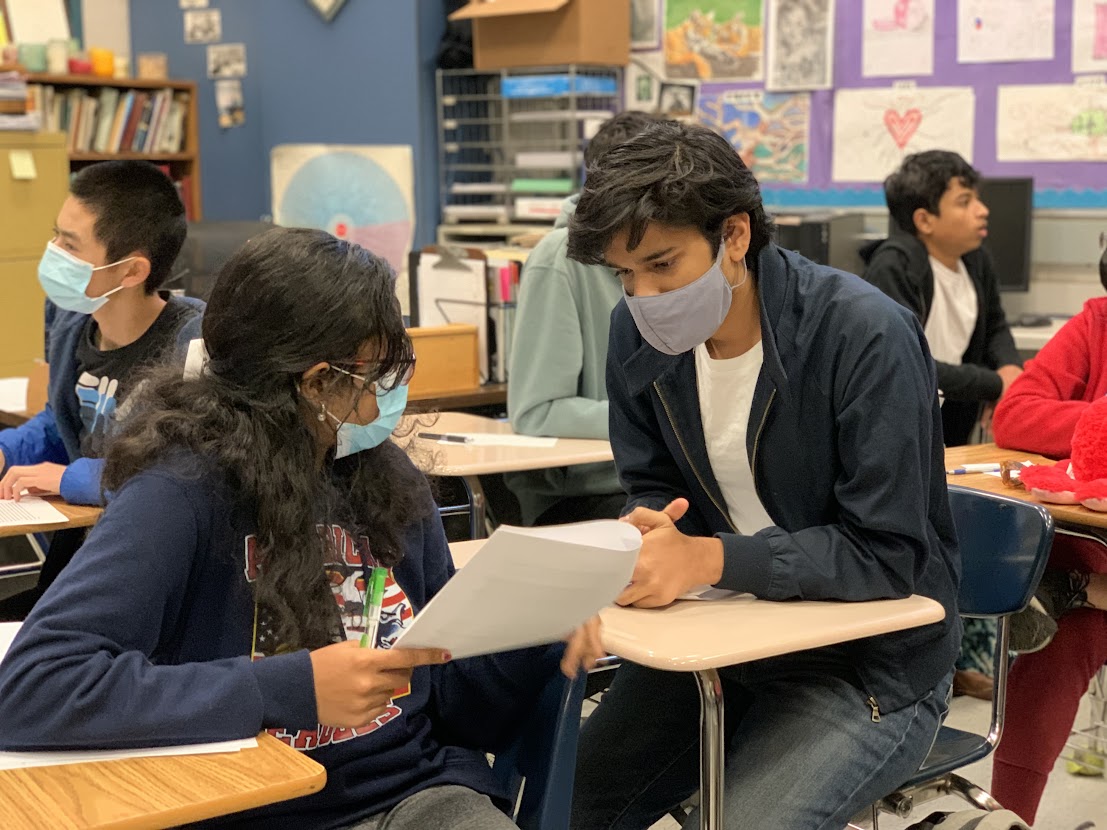
Students engaging in discussions during final in December 2022 in John Creger's 10th grade Honors English class at American High School.
As sophomores, these students are ready to learn and engage with information at this level, but tailoring climate instruction to be age-appropriate is important, and is addressed throughout FUSD’s Curriculum and Instruction (C&I) Department’s ongoing efforts to build climate literacy across grade levels.
This grade-level tailoring is among the strategies teachers can gain in the Environmental Education Professional Development (EEPD) training series offered by C&I. The sessions are open to any FUSD educator who wants help or professional partnership in adding an environmental focus to their instruction. FUSD teachers can sign up for EEPD sessions in Frontline.

Student planting seedling at Blacow Elementary. (photo courtesy of Megan Savage)
For our youngest students – and for students of all ages – engaging and building a connection with nature is a foundational piece of climate education.
Many FUSD schools have gardens, and many educators have joined a School Garden Network (also operated by C&I) to bring those leading school gardens together to share ideas, learn from each other and solve common challenges.
Back at AHS, the garden is a visible representation of what might be called a culture of climate awareness and action.
The school’s Science and Ecology Club coordinates students to tend the garden, and finds ways to make an impact beyond the campus with their efforts.
“We’ve had over 50 students participate this year to cultivate many crops that we’ve donated to local charities,” said Rishi Gurjar, a senior at AHS and president of the Science and Ecology Club, which also hosts an annual Climate Writing Competition.
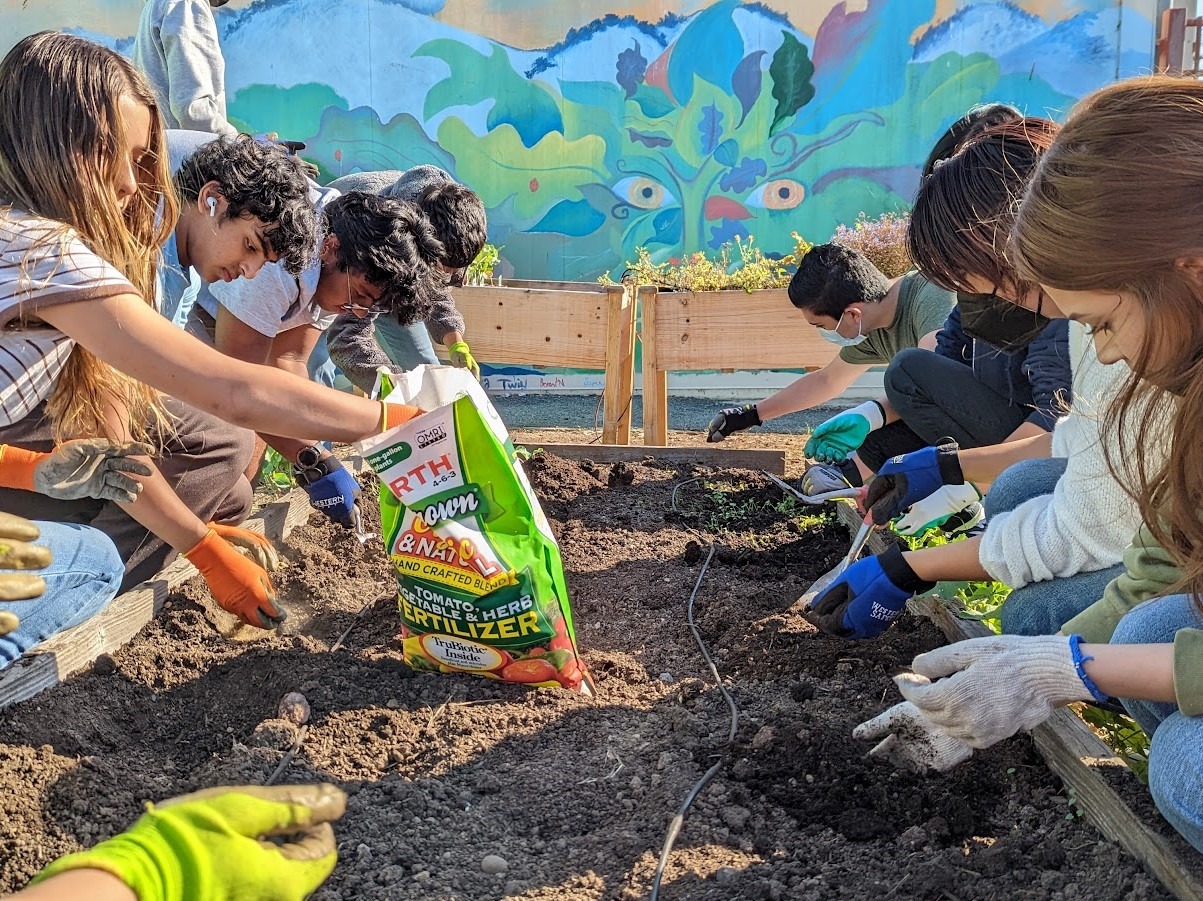
Students tending the garden at American High School. (photo courtesy of Rishi Gurjar)
“We encourage students to write about climate issues even if they have had no exposure to environmental advocacy in the past,” said Gurjar. “For this year, we have multiple categories including public health, law/public policy, engineering, and environment, and we connect those disciplines to the theme of local environmental action.”
Several AHS teachers serve on the judging panel, and the Club sends the winning submissions to local elected officials to share students’ perspectives on these issues in Fremont.
Creger is not alone at AHS in his efforts to build students’ climate literacy, and support and strengthen their skills to effect change.
Much of the dialogue in the 10th grade Honors English final circled back to solutions, the capacity for individuals and groups to make change, and what students can do to mitigate climate change.
“I wanted students to see that concerted global efforts are making a difference,” said Creger.
